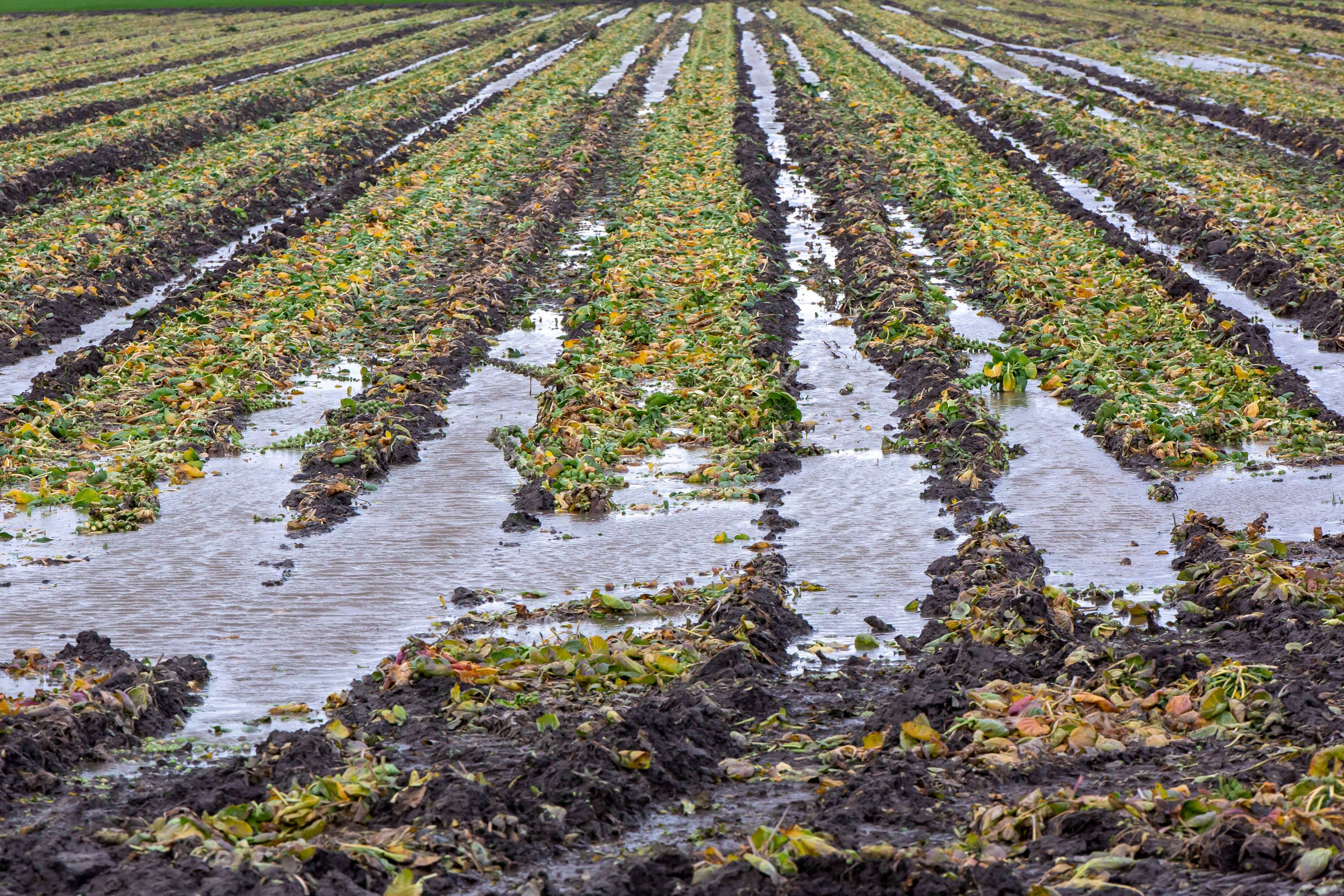

PHOTO: HARRY COCK
‘Try to understand each other’s points of view’
Farmland in crisis:

PROPOSITION
Thecla Goossens faculteit – Faculty of Behavioural and Social Sciences
‘Knowledge is silver, doubt is gold’
A
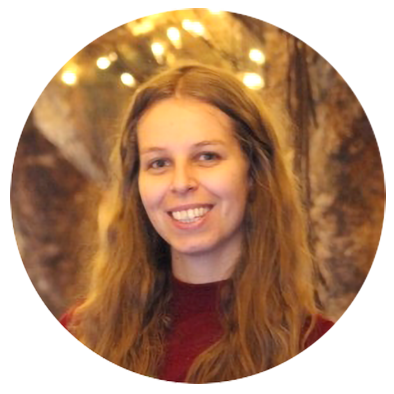
Michella Ligtelijn (1994) studied Biology at the VU Amsterdam and the University of Amsterdam, where she carried out research for her Master’s degree into the effects of pesticides and nitrogen emissions from livestock farming on the soil fauna. She is now in the final stages of her PhD research at the UG. Her current research focuses on the effects of livestock farming on insect populations and how this affects the availability of food for black-tailed godwits in south-west Friesland.
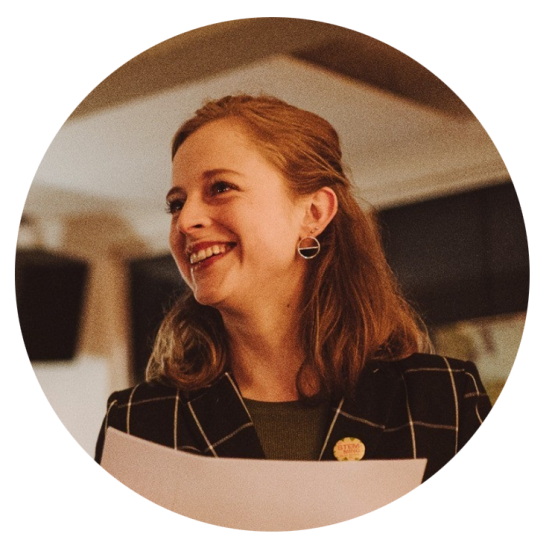
Thereza Langeler (1993) took a Bachelor’s degree in Art, culture and media at the UG, followed by a Master’s degree in Journalism. She’s now been working as a journalist on newspapers, including the UKrant and the Dagblad van het Noorden, for six years. In 2023, she won the Noorderpers
prize for a series of articles in which she gave the nature reserve Fochteloërveen a voice. She is now halfway through her PhD research into political discontent and the role of populism in rural areas.
PHOTO: HARRY KOLENBRANDER
“
‘Nobody is telling us what we should be doing. There’s never an end goal; we never get it right.’
TEXT: NIENKE BEINTEMA
Biologists are sounding the alarm, farmers are protesting on the Malieveld in The Hague,
and politicians are at loggerheads: ‘Netherlands farmland’ is having a tough time. So what is missing, and what is needed to put things right? Can science help? Two UG researchers from different
disciplines sit down to talk to each other about this issue.
Thereza, what are the main problems you come across in your research?
Thereza: ‘My interviews with farmers reveal widespread discontent. After World War II, the powers-that-be said: “We never want to experience that winter of famine again, we must guarantee food security. Farmers need to scale up their operations and farm more intensively.” But the nitrogen ruling made by the Council of State in 2019 meant a U-turn in this thinking. The farmers are suddenly doing everything wrong. In reply, they say: “All this time, we’ve been doing exactly what the government and the banks asked us to do, and now all of a sudden, we’re doing it wrong.” Plus: “Nobody is telling us what we should be doing.’’’
Michella: ‘I hear exactly the same when I talk to farmers. They say: I decide to invest in an expensive measure, and a few years later, everything’s changed. There’s never an end goal; we never get it right.’
Thereza: ‘There are plenty of farmers who are prepared to downsize, but there’s always a possibility that the government will review the situation a few years later, and these farmers will be left out in the cold. It’s this uncertainty that’s making people so unwilling to change.’
But surely there are some farmers who want to make a clean break?
Michella: ‘Yes, of course there are. But considering other business models, or making radical changes, is more complicated than you think.’
Thereza: ‘At the same time, there’s a huge lack of trust in the government and organic farmers. Organic farming is often seen as ”woke” farming that will never be able to feed the whole world. And there’s a lot of misunderstanding. Some farmers think that organic livestock farming means that you can’t give sick animals antibiotics, for example. But this isn’t true: organic farmers use antibiotics, but far fewer and never as prevention.’
Michella: ‘There are also a lot of misapprehensions about biodiversity. People say: look, I must be doing something right because I’ve got black-tailed godwits on my land. But they have always been there, and have actually declined in numbers. Conversely, there are “green” farmers who are doing everything right but still don’t have black-tailed godwits breeding on their land. Your black-tailed godwit tally isn’t necessarily a measure of how well you’re doing.’
So where do you think the solutions lie?
Thereza: ‘First and foremost, farmers need more clarity. More long-term certainty, with concrete goals, preferably per farming concern. And we need fair compensation for farmers who are prepared to make the switch. This means that consumers will have to start paying fair prices for food. At the moment, the supermarkets have the highest profit margins. And the majority of consumers choose on the basis of price.’
Michella: ‘True, the chains need to be shortened. And we must realize that producing food in a good system comes at a price. I understand that this is a financial problem for a lot of people. But we don’t need to eat animal products every single day.’
How do you see your role as scientists?
Michella: ‘Good policy requires good figures and good reports. This is how we can help. And we can try to elucidate on the consequences of taking certain measures. Or of not taking those measures. At the same time, we’re often asked questions to which there are no answers. Ecology is extremely nuanced and there simply aren’t any figures for all the measures taken.’
Thereza: ‘I think my role has more to do with the narrative than the figures. The narrative is the story behind the figures. It shows that the discussion goes beyond “rural versus urban”, or “abstract theory versus practical knowledge.” All these types of knowledge should be used to complement each other.’
Michella: ‘I understand the views of all the parties, but everyone is in their own bubble. I’d like to see more willingness to understand each other. But this means a willingness to connect and communicate.’
Thereza: ‘Yes, particularly live, not just on a screen.’
Michella: ‘There’s so much knowledge available, and there are so many initiatives, but you have to know where to find it. Spreading knowledge is so important, especially outside your own bubble.’
Thereza: ‘There’s a growing tendency for groups to dismiss each other’s knowledge, which means that they talk at cross purposes. It all starts with actually talking to each other, rather than about each other. That’s the only way to understand one another’s point of view.’
According to the experts, this is all down to intensive farming, and more specifically to acidification, over-fertilization, drought, segmentation, and pollution. But farmers aren’t having an easy time either. The margins are tight, the pressure of work and regulation is high, and the image is downright bad. ‘The farmers are being blamed for everything. In the meantime, policy sways back and forth, and politicians no longer know what to do.
Science can help to identify the problems and suggest solutions. Not only the technical disciplines, but also the social-societal fields are important. Broerstraat 5 sat down at the table with two researchers (see text boxes) to discuss the issue.
What is your own discipline?
Michella Ligtelijn: ‘I study insect populations on farms that are run in different ways, from intensive livestock farming to nature-inclusive agriculture. By linking my data to the prevalence of black-tailed godwit chicks on the plots, which depend on these insects for food, I can analyse the effects of various aspects such as groundwater levels and mowing practices.’
Thereza Langeler: ‘I study the social-societal “discourse”. The regional discontent. I’m interested in why on average, more people in rural areas are voting for populist parties. Or to put it another way, why populism is concentrating more on rural areas than on urban areas. What is driving the farmers to protest? What’s their take on the whole nitrogen pollution discussion?’
With regard to the nitrogen pollution issue, what do you think everyone should be aware of?
Michella: ‘To my mind, we need to take a step back in time. People need to think carefully and learn more about the food on their plate. Where does it come from, what’s needed to produce it? This will make it easier to understand both sides: the nature organizations, as well as the farmers.’
Thereza: ‘I think a lot of people don’t actually realize how big the agricultural sector is. It’s not just “the farmers”; you also have the dairy concerns, the producers of animal feed, machines, artificial fertilizer, medicines and pesticides, the vets, the slaughter houses, and so on. The economic impact is gigantic.’
What do you see as the biggest problem?
Michella: ‘I look at this from the biological angle: the impoverishment of the soil, and the impact this is having on biodiversity. I talk to farmers and, although I certainly have sympathy for their side of the story, I can’t ignore the dehydration, the exhaustion, and the monoculture. Even practices we refer to as nature-inclusive aren’t looking good in the ecological sense.’
Thereza: ‘What do you mean by nature-inclusive?’
Michella: ‘There isn’t a clear-cut definition, but we generally mean that farmers are doing their best by growing more species of grass and herbs, mowing later, allowing the groundwater level to rise, and using fewer chemical fertilizers and pesticides. The land looks better here and there, sometimes there are more insects and diversity. But not everywhere; it’s sometimes very disappointing. We haven’t analysed all our results yet, but we think it’s because in our study, these areas are very fragmented. The “green” areas are surrounded by areas of intensive farming, which obviously has an effect on them. And animals that want to relocate still have to cross huge, bare plots of land.’
ccording to the Sovon bird research organization, the number of farmland birds in our country has declined by 70% since 1960. Every year, our ‘national bird’, the black-tailed godwit, produces too few chicks, while the partridge, the ruff, and the marsh harrier have all but disappeared.
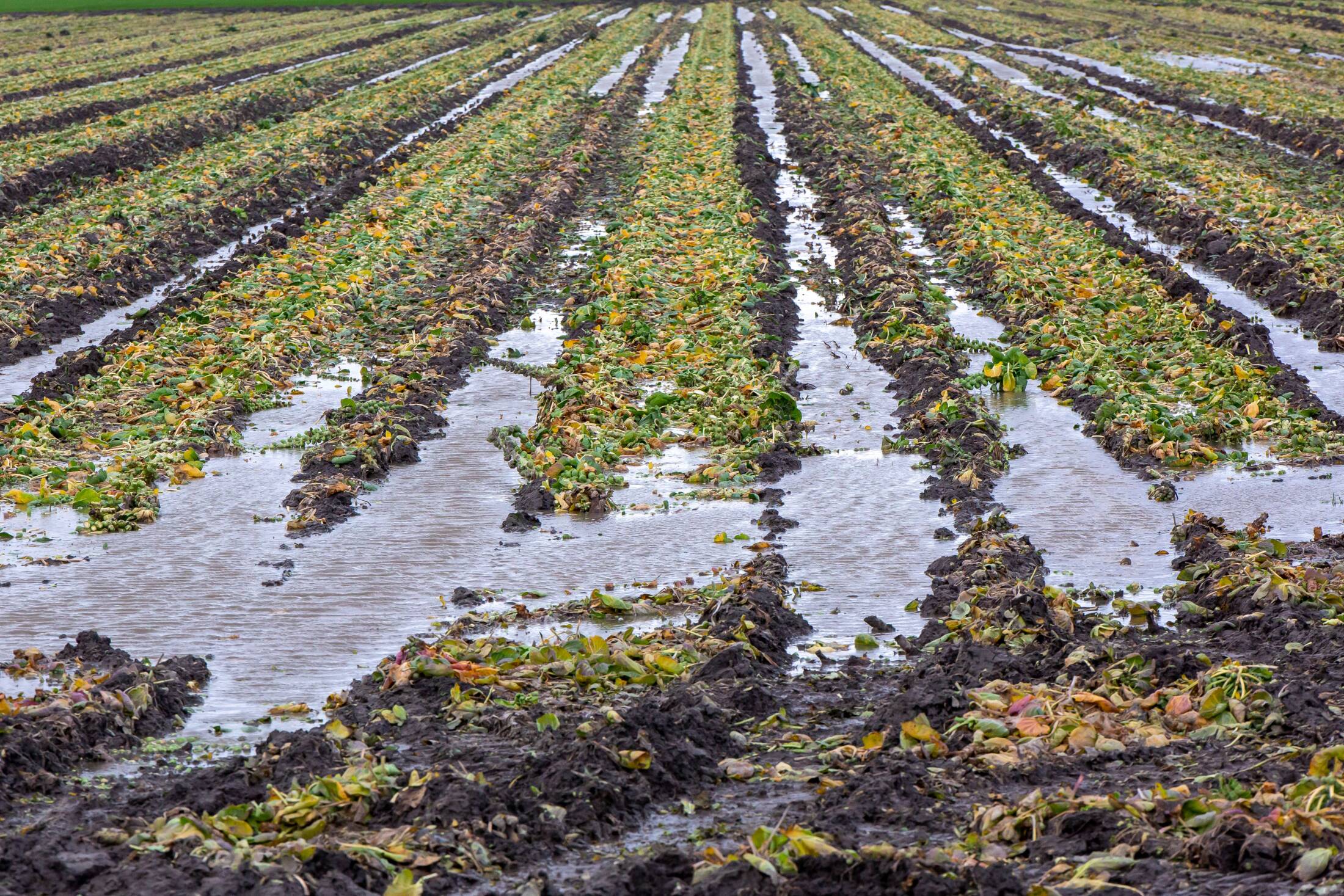

‘Try to understand each other’s points of view’
Farmland in crisis:
PHOTO: HARRY COCK


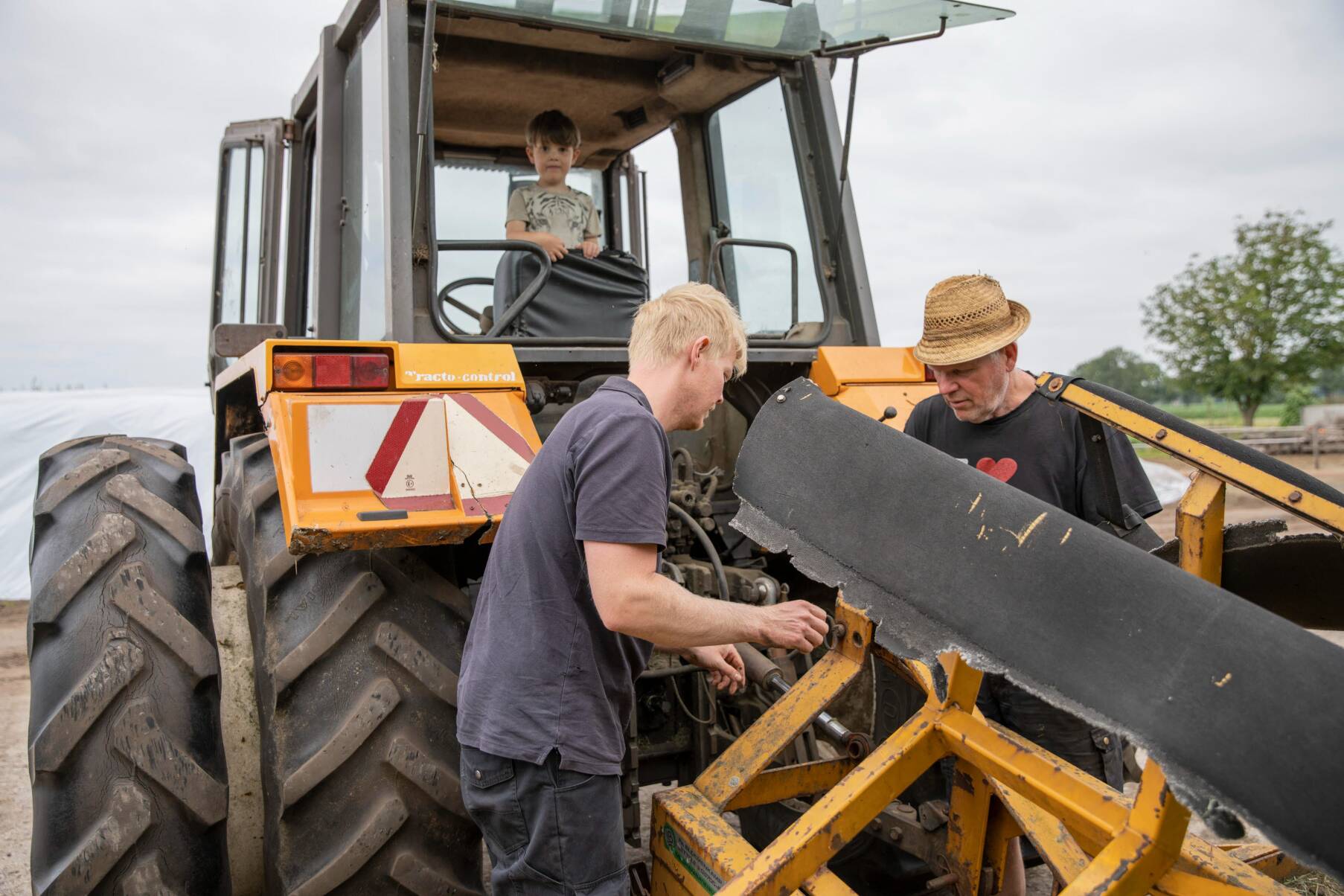
PROPOSITION
Thecla Goossens faculteit – Faculty of Behavioural and Social Sciences
‘Knowledge is silver, doubt is gold’
Thereza, what are the main problems you come across in your research?
Thereza: ‘My interviews with farmers reveal widespread discontent. After World War II, the powers-that-be said: “We never want to experience that winter of famine again, we must guarantee food security. Farmers need to scale up their operations and farm more intensively.” But the nitrogen ruling made by the Council of State in 2019 meant a U-turn in this thinking. The farmers are suddenly doing everything wrong. In reply, they say: “All this time, we’ve been doing exactly what the government and the banks asked us to do, and now all of a sudden, we’re doing it wrong.” Plus: “Nobody is telling us what we should be doing.’’’
Michella: ‘I hear exactly the same when I talk to farmers. They say: I decide to invest in an expensive measure, and a few years later, everything’s changed. There’s never an end goal; we never get it right.’
Thereza: ‘There are plenty of farmers who are prepared to downsize, but there’s always a possibility that the government will review the situation a few years later, and these farmers will be left out in the cold. It’s this uncertainty that’s making people so unwilling to change.’
But surely there are some farmers who want to make a clean break?
Michella: ‘Yes, of course there are. But considering other business models, or making radical changes, is more complicated than you think.’
Thereza: ‘At the same time, there’s a huge lack of trust in the government and organic farmers. Organic farming is often seen as ”woke” farming that will never be able to feed the whole world. And there’s a lot of misunderstanding. Some farmers think that organic livestock farming means that you can’t give sick animals antibiotics, for example. But this isn’t true: organic farmers use antibiotics, but far fewer and never as prevention.’
Michella: ‘There are also a lot of misapprehensions about biodiversity. People say: look, I must be doing something right because I’ve got black-tailed godwits on my land. But they have always been there, and have actually declined in numbers. Conversely, there are “green” farmers who are doing everything right but still don’t have black-tailed godwits breeding on their land. Your black-tailed godwit tally isn’t necessarily a measure of how well you’re doing.’
So where do you think the solutions lie?
Thereza: ‘First and foremost, farmers need more clarity. More long-term certainty, with concrete goals, preferably per farming concern. And we need fair compensation for farmers who are prepared to make the switch. This means that consumers will have to start paying fair prices for food. At the moment, the supermarkets have the highest profit margins. And the majority of consumers choose on the basis of price.’
Michella: ‘True, the chains need to be shortened. And we must realize that producing food in a good system comes at a price. I understand that this is a financial problem for a lot of people. But we don’t need to eat animal products every single day.’
How do you see your role as scientists?
Michella: ‘Good policy requires good figures and good reports. This is how we can help. And we can try to elucidate on the consequences of taking certain measures. Or of not taking those measures. At the same time, we’re often asked questions to which there are no answers. Ecology is extremely nuanced and there simply aren’t any figures for all the measures taken.’
Thereza: ‘I think my role has more to do with the narrative than the figures. The narrative is the story behind the figures. It shows that the discussion goes beyond “rural versus urban”, or “abstract theory versus practical knowledge.” All these types of knowledge should be used to complement each other.’
Michella: ‘I understand the views of all the parties, but everyone is in their own bubble. I’d like to see more willingness to understand each other. But this means a willingness to connect and communicate.’
Thereza: ‘Yes, particularly live, not just on a screen.’
Michella: ‘There’s so much knowledge available, and there are so many initiatives, but you have to know where to find it. Spreading knowledge is so important, especially outside your own bubble.’
Thereza: ‘There’s a growing tendency for groups to dismiss each other’s knowledge, which means that they talk at cross purposes. It all starts with actually talking to each other, rather than about each other. That’s the only way to understand one another’s point of view.’
“
‘Nobody is telling us what we should be doing. There’s never an end goal; we never get it right.’
has declined by 70% since 1960. Every year, our ‘national bird’, the black-tailed godwit, produces too few chicks, while the partridge, the ruff, and the marsh harrier have all but disappeared. According to the experts, this is all down to intensive farming, and more specifically to acidification, over-fertilization, drought, segmentation, and pollution. But farmers aren’t having an easy time either. The margins are tight, the pressure of work and regulation is high, and the image is downright bad. ‘The farmers are being blamed for everything. In the meantime, policy sways back and forth, and politicians no longer know what to do.
Science can help to identify the problems and suggest solutions. Not only the technical disciplines, but also the social-societal fields are important. Broerstraat 5 sat down at the table with two researchers (see text boxes) to discuss the issue.
What is your own discipline?
Michella Ligtelijn: ‘I study insect populations on farms that are run in different ways, from intensive livestock farming to nature-inclusive agriculture. By linking my data to the prevalence of black-tailed godwit chicks on the plots, which depend on these insects for food, I can analyse the effects of various aspects such as groundwater levels and mowing practices.’
Thereza Langeler: ‘I study the social-societal “discourse”. The regional discontent. I’m interested in why on average, more people in rural areas are voting for populist parties. Or to put it another way, why populism is concentrating more on rural areas than on urban areas. What is driving the farmers to protest? What’s their take on the whole nitrogen pollution discussion?’
With regard to the nitrogen pollution issue, what do you think everyone should be aware of?
Michella: ‘To my mind, we need to take a step back in time. People need to think carefully and learn more about the food on their plate. Where does it come from, what’s needed to produce it? This will make it easier to understand both sides: the nature organizations, as well as the farmers.’
Thereza: ‘I think a lot of people don’t actually realize how big the agricultural sector is. It’s not just “the farmers”; you also have the dairy concerns, the producers of animal feed, machines, artificial fertilizer, medicines and pesticides, the vets, the slaughter houses, and so on. The economic impact is gigantic.’
What do you see as the biggest problem?
Michella: ‘I look at this from the biological angle: the impoverishment of the soil, and the impact this is having on biodiversity. I talk to farmers and, although I certainly have sympathy for their side of the story, I can’t ignore the dehydration, the exhaustion, and the monoculture. Even practices we refer to as nature-inclusive aren’t looking good in the ecological sense.’
Thereza: ‘What do you mean by nature-inclusive?’
Michella: ‘There isn’t a clear-cut definition, but we generally mean that farmers are doing their best by growing more species of grass and herbs, mowing later, allowing the groundwater level to rise, and using fewer chemical fertilizers and pesticides. The land looks better here and there, sometimes there are more insects and diversity. But not everywhere; it’s sometimes very disappointing. We haven’t analysed all our results yet, but we think it’s because in our study, these areas are very fragmented. The “green” areas are surrounded by areas of intensive farming, which obviously has an effect on them. And animals that want to relocate still have to cross huge, bare plots of land.’
ccording to the Sovon bird research organization, the number of farmland birds in our country
A

Thereza Langeler (1993) took a Bachelor’s degree in Art, culture and media at the UG, followed by a Master’s degree in Journalism. She’s now been working as a journalist on newspapers, including the UKrant and the Dagblad van het Noorden, for six years. In 2023, she won the Noorderpers
prize for a series of articles in which she gave the nature reserve Fochteloërveen a voice. She is now halfway through her PhD research into political discontent and the role of populism in rural areas.

Michella Ligtelijn (1994) studied Biology at the VU Amsterdam and the University of Amsterdam, where she carried out research for her Master’s degree into the effects of pesticides and nitrogen emissions from livestock farming on the soil fauna. She is now in the final stages of her PhD research at the UG. Her current research focuses on the effects of livestock farming on insect populations and how this affects the availability of food for black-tailed godwits in south-west Friesland.
Biologists are sounding the alarm, farmers are protesting on the Malieveld in The Hague, and politicians are at loggerheads: ‘Netherlands farmland’ is having a tough time. So what is missing, and what is needed to put things right? Can science help? Two UG researchers from different disciplines sit down to talk to each other about this issue.
TEXT: NIENKE BEINTEMA
